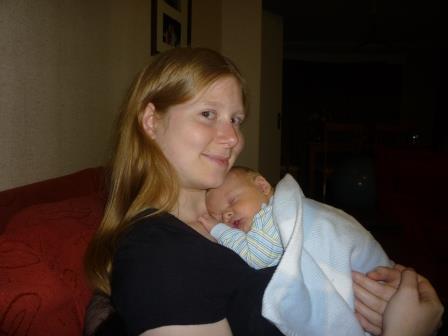
Someone once told me I would look forward to returning to work when I had finished enjoying my “love affair with motherhood”.
At the time, this simply irritated me, though I wasn’t sure why. Time has allowed me to articulate the sources of my irritation.
1. Explicit in this statement is the certainty that I am in the grip of feelings that will pass, but becoming a mother is a lifelong commitment, not something that stops when your maternity leave runs out. Perhaps the novelty of being in thrall to a small person fades, but the love they inspire doesn’t.
2. Worse, there is an implicit conviction that what I see as an important new role in my life is really a “fling”, a bit like an ill-judged holiday romance that falters to a sad conclusion, or a transient craving for pickles with ice cream; it will pass because it isn’t rational, merely passionate (and we all know how irrational passionate women are).
3. There is a further idea that I will be glad when my life returns to “normal”, that becoming a mother is some kind of aberration that I need to “get over” or “get past”. “Normal” is the world of adult jobs and concerns. Children (in this viewpoint) are some kind of Problem and the solution is Childcare.
4. Motherhood in this characterisation becomes a thing, like ketchup or French films, rather than a role. It is a fad, not a job worthy of dedication and even respect.
Most likely, the person who expressed this sentiment wasn’t consciously thinking any of the above points. But. They form the underlying construct for such a viewpoint. Of course, this view isn’t unusual in Western societies, quite the opposite.
I have read two books recently which helped me to understand just why this viewpoint, with its implicit denigration of motherhood, is so problematic. The first is ‘What Mothers Do‘ by Naomi Stadlen, the second ‘What Babies and Children Really Need‘ by Sally Goddard Blythe. I’ll post reviews of both over the next week or so.

On motherhood and childhood – recent reads.
Meanwhile, if you know a mother who’s having a difficult time, reassure her that she’s doing a brilliant job. The odds are, she does far more than she realises.